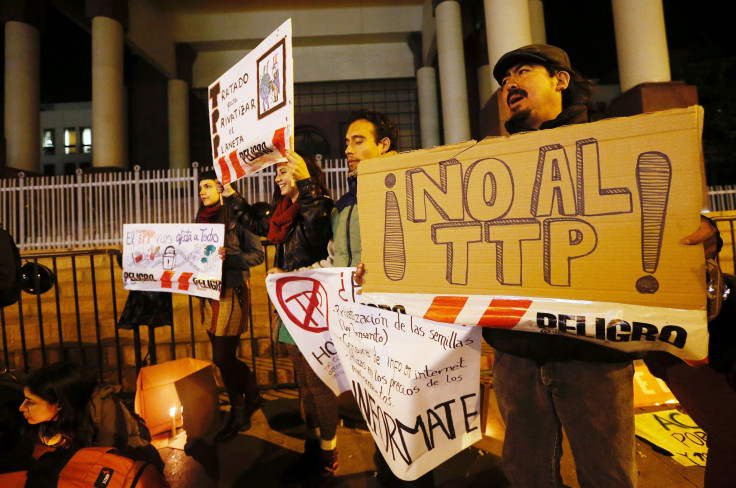What Is Free Trade? 11 Facts About Donald Trump Speech On Whether Economic Independence Is Good Or Bad For America

The small town of Monessen in western Pennsylvania once helped deliver elections across the state for Democrats. But the former mill town, along with hundreds like it, was courted by Donald Trump Tuesday when the presumptive Republican presidential nominee made his way there to reassure residents who have seen thousands of jobs disappear in recent decades that his White House will reverse free trade deals and restore their prosperity.
“If ISIS was to come to Monessen, they’d keep on going. They would think it was bombed already, that’s how bad it is," Monessen Mayor Louis Mavrakis, a lifelong Democrat and a former United Steelworkers official who invited Trump to address the town's jobs crisis, told local media this week. “My gripe is very simple. … The very communities that built this country are the ones suffering the most.”
Trump blasted free trade deals in his speech titled "Declaring American Economic Independence," at Alumisource, a company just outside of Pittsburgh that provides shredded scrap to the aluminum and steel industries. The event was the latest effort from the Trump campaign to appeal to working-class voters regardless of political affiliation amid widespread discontent over stagnant wages.
Trump said he will impose tariffs on imports from Mexico and China, two of the country's top trade partners. Trump's presumed opponent, Hillary Clinton, once supported the White House's trade deals, such as the Trans-Pacific Partnership. She has changed her positions in recent months under pressure from her rival for the Democratic nomination, Vermont Sen. Bernie Sanders, also framed free trade as a threat to working-class Americans. Clinton promised during a rally in Ohio Monday to name a trade prosecutor to "end the abuse" of U.S. workers.
The campaign back-and-forth can be confusing for many Americans not informed in trade policy. They might wonder, what gives? Are these deals good or bad for American workers? Below are 11 facts about how free trade shapes the U.S. economy.
1. Trade policy can involve bans, quotas and tariffs between countries, but free trade allows partners to import and export goods without such restrictions.
2. The U.S. currently maintains 14 trade agreements with 20 countries, according to the Commerce Department.
3. Washington is divided over whether to pass a Pacific trade agreement, known as the Trans-Pacific Partnership, which would open trade among the United States, Australia, Brunei, Canada, Chile, Japan, Malaysia, Mexico, New Zealand, Peru, Singapore and Vietnam.
4. Critics of free trade complain that some countries, especially China, cheat the system by keeping their currency artificially low, making their products more competitive than U.S. goods.
5. Proponents counter that cheap consumer goods benefit American families mindful of home budgets. Prices stay low and savings can be directed for other living costs.
6. Foreign trade deals govern a significant part of the U.S. economy. In the 1960s, exports and imports represented about 10 percent of U.S. gross domestic product. That share is now nearly 30 percent.
7. Economists differ on how trade deals affect U.S. workers. Many assert that there is no link between free trade agreements and job losses, while some economists predict that the TPP will cost America 448,000 more jobs.
8. China became a member of the World Trade Organization in 2001.
9. China has seen employment growth in many industries that have experienced employment declines in the U.S., which many free trade critics point to as evidence that Chinese workers are "taking" American jobs.
10. The changing global economy has been hard on working-class Americans. Bureau of Labor Statistics research shows the number of manufacturing jobs peaked in 1979, 15 years before North American Free Trade Agreement with Canada and Mexico.
11. About 51 percent of Americans have a positive view of free trade deals, but 39 percent said they are bad for U.S. workers, according to a Pew Research Center survey in March. Democrats are more likely to say the support free trade than Republicans.
© Copyright IBTimes 2024. All rights reserved.











